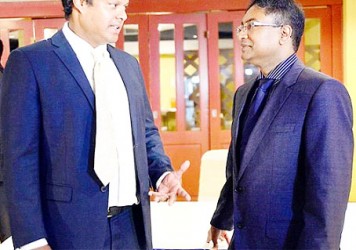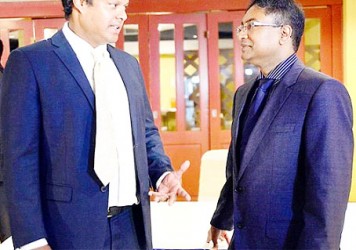(Trinidad Express) Six years after the collapse of Colonial Life Insurance Company Ltd (CLICO), the company’s creditors and policy holders will finally have relief from their “traumatic experience”, according to Central Bank Governor Jwala Rambarran.
Rambarran was speaking at the Fourth Monetary Policy Forum, hosted by the San Juan Business Association (SJBA), at Angostura Compound in Laventille, on Monday.

The Governor said CLICO had made its first payment of just over TT$4 billion to its single largest creditor—the Trinidad and Tobago Government—and is currently processing around TT$950 million to some 1,500 policy holders who have endured “unimaginable hurt and pain”.
He said both creditors are receiving an equal 85 per cent payout in the first distribution, while the remaining 15 per cent will be paid in two subsequent distributions, pending the sale of certain CLICO assets.
In the coming year, Rambarran said, Government stands to receive some TT$10 billion from CLICO which can be used to reduce public debt, over half of which was incurred due to the CLICO bailout.
However, Rambarran declined to comment on the outrage of the CLICO Policy Holders Group (CPHG) that several former CLICO directors are included in the TT$950 million payout.
A reported TT$48.5 million has been allocated to repay the policies of ten former directors and their companies.
The CPHG has been calling for the payments to be immediately halted until all other policy holders are paid as they believe the former directors contributed to the CLICO collapse through mismanagement, negligence or inaction.
Questioned on the issue, Rambarran said it was a matter of privacy and he would not make a public statement.
“I will not be commenting on the dealings between an insurance company and its customer,” he said.
Rambarran also maintained that there is currently no shortage of US dollars in Trinidad and Tobago’s foreign exchange market.
He said while there had been a shortfall of almost TT$1 billion to meet the foreign exchange demand, the Central Bank had completely offset the shortfall with a US$995 million injection.
He said members of the public and the business community were bringing forward their future demand for foreign exchange in anticipation of a shortage, but he assured that this was not necessary.
“As we move into the busy summer season, the Central Bank has already put measures in place to deal with the anticipated higher demand for foreign exchange, particularly US cash. We requested commercial banks to raise their branch limits for US cash beyond US$500 per person. We also established an intervention system for selling US cash to commercial banks as we do for selling foreign exchange to authorised dealers. So, if commercial banks or the banking system itself runs low on US cash, the Central Bank will meet the shortfall.”






